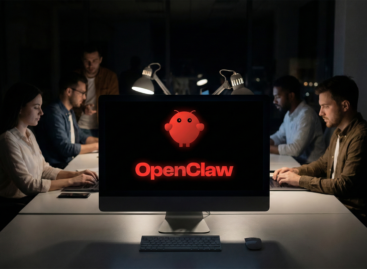AI could be the key to sustainable cost cutting
In recent years economic uncertainty has fundamentally changed the market conditions for retail: high inflation has entailedcost increases across the supply chain, forcing consumers to save and increasing competition.
This article is available for reading in Trade magazin 2025/6-7.
These challenges have led to a focus on cost reduction and margin protection everywhere. In order to cut purchasing and processing costs and improve competitiveness, many retailers are relying on AI to reduce direct purchasing costs by up to 5%, according to a new report by Boston Consulting Group (BCG) and Inverto. As for indirect sourcing and process efficiency, the consulting firm has found even more obvious potential for optimisation.

Artificial intelligence can reduce direct purchasing costs by up to 5 per cent
Can help you negotiate better

Marcus Kroth
partner, retail expert
BCG
“Optimising direct sourcing is the most important way to curb costs in retail. In retail trade the cost of goods accounts for 60-75% of sales, so in this area even a small percentage of saving can have a big influence on revenues”,
says Marcus Kroth, retail expert and partner of BCG.
However, many buyers don’t have the data they need to have an optimal negotiating position: 72% of the buyers surveyed wish they had more facts and figures to back up their arguments in such situations. A similar number reported that they lack the analytical skills to draw in-depth conclusions and make data-based arguments. Digital AI-based tools such as the automated tracking of commodity prices can help buyers by providing the information and benchmarking data needed to negotiate more effectively.

The biggest improvements can be achieved when companies use AI to transform entire business areas
AI can reduce indirect costs
In addition to direct purchasing, significant savings can also be made in indirect costs by using AI.

Simone Hilbring
managing director
Inverto
Simone Hilbring, sourcing expert and managing director of Inverto:
“Indirect procurement offers several opportunities for reducing often unnecessary expenditure, but the consistent optimisation of resources is crucial to success”.
AI-powered analytics can help to better manage indirect costs by identifying hidden saving opportunities and suggesting alternative sourcing strategies.
End-to-end
AI can be used to improve the efficiency of entire workflows too, and the biggest improvements can be achieved when firms deploy AI to transform complete business areas. Leading retailers are already implementing AI-based end-to-end restructuring in key areas such as procurement, supply chain, customer service and marketing, in order to have long-term competitive edge. For instance the targeted application of AI has made it possible to create complete marketing campaigns in a matter of hours, compared to weeks in the past, and it can reduce production costs by up to 50%. At the same time companies can shorten campaign cycles and respond more flexibly to market changes, which should further increase efficiency. According to Marcus Kroth, AI is making retail not only more cost-effective, but also more agile and flexible. //

Related news
Expert: EU AI regulation is here, but Hungarian businesses will have time to prepare for the changes
🎧 Hallgasd a cikket: Lejátszás Szünet Folytatás Leállítás Nyelv: Auto…
Read more >A developing digital employee who works independently – AI has taken the next level
🎧 Hallgasd a cikket: Lejátszás Szünet Folytatás Leállítás Nyelv: Auto…
Read more >Hungarian world first: AI calculator calculates how much a company will lose during the flu season and how much can be saved by using preventive technologies
🎧 Hallgasd a cikket: Lejátszás Szünet Folytatás Leállítás Nyelv: Auto…
Read more >Related news
It could lead to crop failure if farmers switch to too frugal mode
🎧 Hallgasd a cikket: Lejátszás Szünet Folytatás Leállítás Nyelv: Auto…
Read more >(HU) A nap mondása
🎧 Hallgasd a cikket: Lejátszás Szünet Folytatás Leállítás Nyelv: Auto…
Read more >GLP 1: passing hype or a lasting trend?
🎧 Hallgasd a cikket: Lejátszás Szünet Folytatás Leállítás Nyelv: Auto…
Read more >









